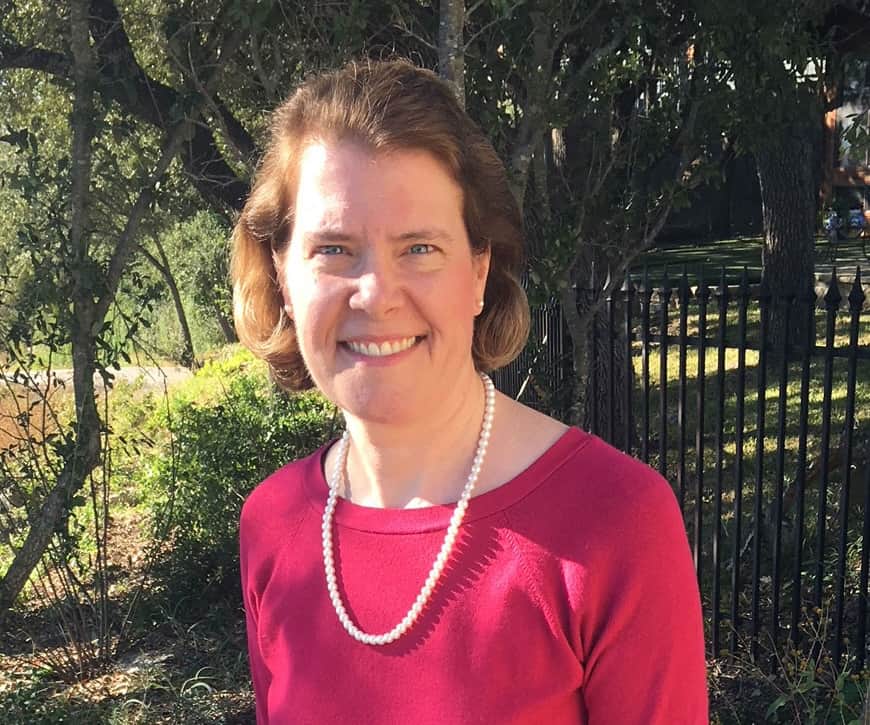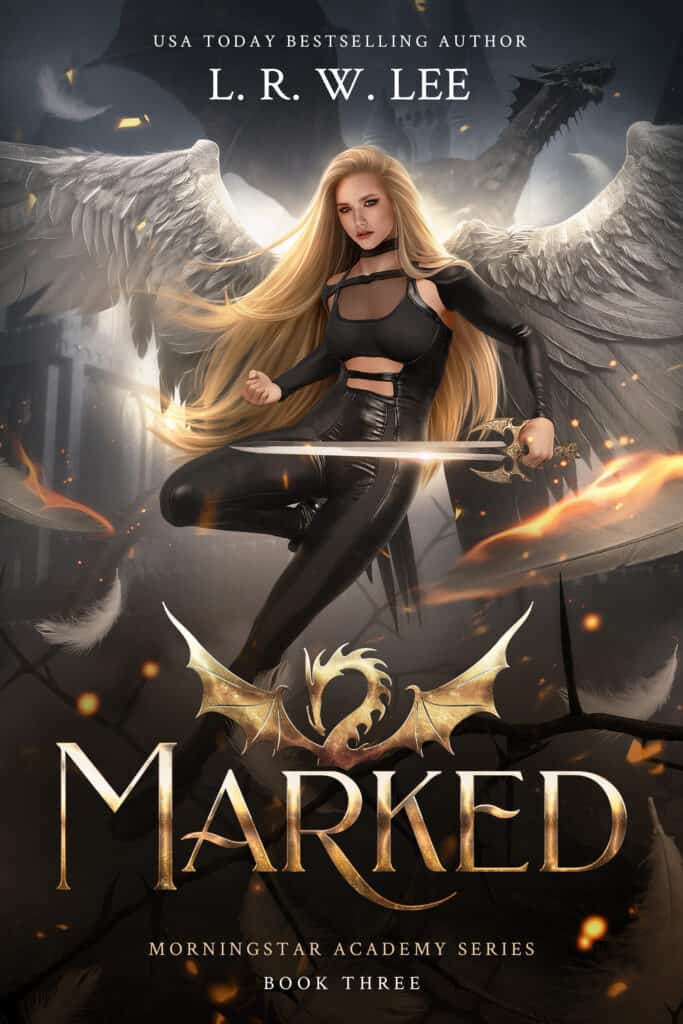
L.R.W. Lee
Austin, TX
USA Today bestselling author with 20 books and counting!
BOOK COVER
BOOK DETAILS

Pub Date: May 16, 2024
Genre: Young Adult
Publisher: Woodgate Publishing
Page Count: 283
Format: Paperback, Hardcover, Ebook
ISBN: Paperback, 9798884001183
Price: Paperback, $15.99; Ebook, $3.95
ABOUT THE BOOK
From USA Today bestselling author L. R. W. Lee, Marked is the third book in the addictive Morningstar Academy series, about a fallen angel who fights to save a world spiraling out of control, all while trying to protect humans and her own heart. This intriguing and unseen world of angels and demons is perfect for fans of Good Omens and Penryn & the End of Days. It will give perspective and hope in a world that feels like it’s upside down these days.
Despite their best efforts, fallen angel Gladriel, her new fallen friends, and her former squadron mates have had limited success shifting the world ending prophecy and they feel increasingly helpless as war, famine, plague, and hyperinflation rage, killing millions of the humans they are committed to protecting.
With conditions worsening on Earth, celestial warriors are kept increasingly busy aiding humans, making Squadron Leader Kessien less and less available. At the same time, Morningstar Academy forces Glad to do increasingly heinous things to humans, and the distance stretches their relationship to the breaking point.
Glad and her fallen friends’ only hope for rescue is to throw themselves on the Almighty’s mercy and beg him to reverse their sentences. Trouble is, Glad will never be sorry for avenging her BFF’s honor, against his explicit orders. So when her friends promise to never abandon her for their own safety, she finds it unbearable to be the cause of their impending doom along with her own.
ABOUT THE AUTHOR
“I compare you to my all time favorite authors, whose every book I have read: Catherine Cookson and Jodie Picoult. Yes, your style, and subject matter, and audiences are not the same, but for my sense of enjoyment? I’ll add you gladly to my list along with the likes of David Baldacci, Stephen King, John Grisham, Nicholas Sparks, etc who have also given me hours of enjoyment, each in their own style.” -Carol E., Avid Reader
USA Today Bestselling author L. R. W. Lee writes genre-bending stories in vivid worlds with sweet romance and stunning plot twists that not only help you escape, but actually help you live better.
She loves writing such fantasy because her characters are everything she’s not in real life. For example, L. R. W. can’t handle scary movies or cockroaches. But give her a drink and a Hawaiian sunset and she’ll be just fine.
She lives in scenic Austin, TX with her husband. Their two children have flown the coop.
Since age 8, she had wanted to write a book patterned after The Lion, the Witch, and the Wardrobe, her first and favorite childhood fantasy read. She started writing professionally in 2012 after selling the dot com company she co-founded.
TALKING POINTS
- What makes L. R. W. Lee unique – She writes genre-bending stories in vivid worlds with sweet/spicy romance and stunning plot twists that not only help you escape but actually help you live better.
- Apocalyptic fiction – With the collision of so many opposing forces and at rates never before seen in human history—wars, earthquakes, volcanoes, rising prices, the value of national currency decreasing, unelected elites pushing a global world order, and more—many people feel anxious and want to know if we are hurtling toward the end of the world as we know it. Lee can discuss her riveting retelling of the mysterious book of Revelations, beyond just 666, in a narrative that helps the reader understand and personalize events predicted as one point of view in making sense of world events.
- A great romance – Lee can discuss her favorite types of romances to write, and how to write them in a way that grabs the reader and leaves them begging for more, including the slow-burn, friends-to-lovers romance she created in Morningstar Academy and the romances in her other series.
- Creating a fantasy world – Lee can discuss the elements that create a believable fantasy world readers long to lose themselves in.
TIMELY TIE-INS
August
- Romance Awareness Month
- Book Lover’s Day – 9
September
- Be Kind to Editors and Writers Month
- Read a Book Day – 6
- International Literacy Day – 8
- International Read an eBook Day – 18
- R.E.A.D. in America Day – 23
SUGGESTED INTERVIEW QUESTIONS
- Morningstar Academy is your fourth series. It seems like you always have an underlying theme to your writing. For example, you focused on #MeToo in the Sand Maiden series and body image in your God of Secrets series. Why are you writing the Morningstar Academy series?
- Morningstar Academy is told from the point of view of celestials rather than from a human POV like most other apocalyptic fiction. Why did you make the decision to tell the story that way? Does the intended audience change the way you tell the story?
- The dialogue among the primary characters alternates throughout and reveals a world from two points of view. Why did you choose to write in this style rather than just one POV?
- A third of the way into the first novel in the series, celestial warrior Gladriel makes a decision that changes her and her squadron’s lives forever and is key to the series: “The Almighty promised to exact vengeance, yet he hasn’t bothered to so much as lift a pinky in over thirty days. I’m sick of it.” Can you talk about Glad’s decision and your decision to have her articulate this sentiment?
- Gladriel is a passionate character who allows loyalty to make her act before fully considering the consequences. The same theme carries over as she refuses to submit to the curriculum of Morningstar Academy, the institution that indoctrinates newly fallen to Lucifer’s philosophies. When writing a character like Glad, you use her passion and loyalty as negative traits that get her into trouble. But loyalty and passion are considered by most to be positive traits. Why use what is usually a strength and make it a weakness? Are you ever tempted to extol her passion and loyalty as virtues and just let her enjoy a well-deserved win?
- As the leader of a celestial squadron, Kessien is a protector at heart and has done his best in service of the Almighty’s objectives for eons, without question. But when Gladriel falls, his love for her motivates him to challenge the boundaries of acceptable heavenly behavior and discover that his preconceived notions aren’t shared by those in authority. Can you talk about his journey and your decision to include it in this story?
- What’s next for you?

BOOK DETAILS
Pub Date: May 17, 2022
Genre: Memoir / Christian Inspirational
Publisher: She Writes Press
Page Count: 304
Format: Paperback
ISBN: 978-1647429003
Price: $15.99
